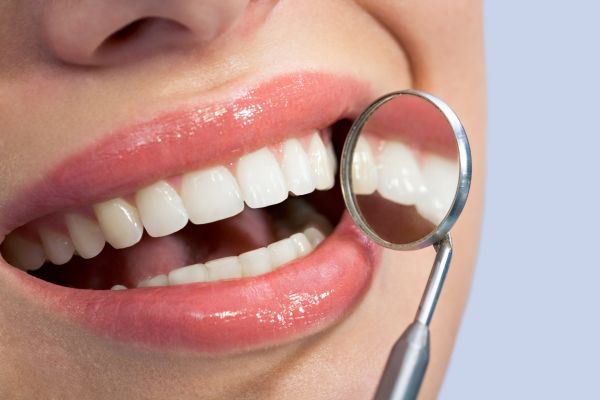A Periodontist Advises You Watch Out for These Signs of Gum Recession

Gum recession is one of the common signs of gum disease and is usually treated by a periodontist. It is a situation where the roots of the teeth are exposed due to loss of gum tissues or retraction of the gums from the tooth crown. The condition is prevalent in adults above the age of 40, but symptoms could start as early as the teenage years.
Signs of gum recession
Sensitivity
When plaque and tartar accumulate on the teeth, they can cause the gums to recede and damage the bone supporting the tooth. Once pockets form around the gum, the area will be more difficult to clean, and the acids produced eat away at the tooth enamel. This makes the teeth and root sensitive to substances at extreme temperatures.
Tender gums
Periodontal disease in its early stages is not usually painful, and the signs are almost mild. However, if neglected, the symptoms can worsen into advanced gum disease called periodontitis. Gum recession could be imminent if you experience red, swollen gums, bleeding gums, persistent bad breath or foul taste.
Long teeth
Upon the commencement of gum recession due to periodontal disease, the teeth will appear longer than they normally are. This situation is called a toothy smile and can cause cosmetic concerns and hamper the health of the teeth and gums. The result of long teeth includes gum irritation, bone loss, root caries, sensitivity around the root surfaces and eventual tooth loss.
Exposed roots
Gum recession exposes the roots of the tooth. Root exposure can be both painful and extremely sensitive. It could be caused by gum disease or by brushing vigorously with a hard-bristled toothbrush. Try to use only soft-bristle toothbrushes, and be gentle on your gums while brushing.
Loose teeth
The loose tooth is a result of bacteria presence beneath the gums surrounding the teeth. As gum diseases worsen and recession progresses, the gum pockets deepen, and since they are no longer firmly attached to the tooth, the tooth loosens. The infection causes gum and jaw deterioration and makes the tooth less stable.
Preventing receding gums
The best way to prevent or reverse receding gums is to visit a periodontist for treatment and regular cleanings. Even if you cannot see the symptoms, this dental expert is skillful enough to detect the presence of diseases. You can also avert gum diseases by adopting excellent oral care routine.
Although regular brushing and flossing help reduce bacteria and clean away food particles, plaque and tartar can only be cleaned by a professional. Since tartar plays an active role in gum recession, it is advisable to keep up with biannual dental appointments to prevent complications.
In summary
Gum disease is an unpleasant disease. As the bacterial infection affects the teeth and surrounding tissues, they destroy the attachment present and cause gum recessions. Once you start noticing any of the signs mentioned above, visit the periodontist immediately for diagnosis and treatment.
Request an appointment here: https://corderoperiodontics.com or call Rafael E. Cordero, DDS PA at (561) 763-9221 for an appointment in our Palm Beach Gardens office.
Check out what others are saying about our services on Yelp: Read our Yelp reviews.
Recent Posts
Dental care is an essential part of maintaining a healthy smile. However, many individuals need sedation dentistry to manage fear and discomfort during dental procedures. This type of dentistry provides a way to undergo necessary dental care with greater ease and less stress. Sedation dentistry makes dental visits more comfortable and safer, particularly for those…
A gum grafting procedure from an oral surgeon is a great way to improve the appearance of your smile, address any issues you may have with periodontal disease, and help ensure optimal support for your teeth. This review discusses the various benefits of a gum grafting procedure.As mentioned, there are cosmetic and oral health benefits…
A robust oral hygiene routine serves as the foundation for a healthy smile and gum disease prevention. When plaque and tartar accumulate along the gumline, the risk of periodontal issues increases significantly. Simple daily habits, combined with professional guidance, can significantly reduce the likelihood of gum inflammation and more serious periodontal complications. Here are simple,…
Preparing for dental implant recovery is just as important as getting ready for the dental implants themselves. A good recovery sets the stage for successful implants that can last the rest of your life, with few additional changes or fixes. Here is what to expect after a dental implant procedure so you can adjust your…


